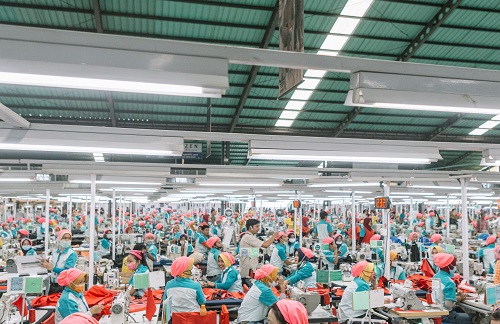 Even as the COVID-19 pandemic spread across the world, fast fashion brands including H&M and Zara kept their stores open for the majority of March. Retail workers in these stores were on the front line in the middle of growing confirmed numbers of cases.
Even as the COVID-19 pandemic spread across the world, fast fashion brands including H&M and Zara kept their stores open for the majority of March. Retail workers in these stores were on the front line in the middle of growing confirmed numbers of cases.
Focus on workers’ health and safety
As Aja Barber, a writer and consultant focusing on fashion’s intersections with feminism, race, and colonization, action should be taken to support the health and safety of these workers. Aja aims to shed a light on the working conditions of retail through her Instagram account. This will force people to be more critical of the entire fast fashion system.
Replying to this criticism, H&M stated they had begun closing stores in the US prior to all their stores closing on March 1. The brand also provided employees with additional pay in response to the COVID-19 pandemic. However, the brand was forced to furlough some workforce in the US due to the negative impact the pandemic had on its business.
Order cancellation leads to layoffs
In addition to impacting retail workers, the pandemic has also impacted 40 million garment workers living in low-wage countries across Southeast Asia and Europe. As Bloomberg reports, cancelling of $1.5 billion worth orders by European companies has led to furlonging employees from about 1,089 garment factories in Bangladesh.
and Europe. As Bloomberg reports, cancelling of $1.5 billion worth orders by European companies has led to furlonging employees from about 1,089 garment factories in Bangladesh.
Many of them are women who are their family’s primary wage earner. A recent report by Worker Rights Consortium details that very few of these workers have ever been paid enough to accumulate any savings. These workers are now demanding a more equitable approach by fashion brands in sharing the financial burden of the crisis.
Over 1 million garment workers in Bangladesh have been fired or furloughed due to orders being cancelled, states a Penn State report. To deal with this, Fashion Revolution, global nonprofit calls for greater transparency in the industry, asking people to send an email to their favorite brands and demand they pay for orders already placed.
Fair treatment for supply chain workers
Barber points out, supply chain workers should be considered as employees of the companies they produce for instead of being contracted through third parties. Céline Semaan, Executive Director of Slow Factory Foundation, also views the recent treatment of retail workers as a curtain that has been lifted. This pandemic is putting the entire fashion industry on hold while placing an incredible amount of economic pressure on ethical brands and independent designers.
While most stores are closed, online shopping continues with employees for fast fashion giants like ASOS currently working at its warehouse in Grimethorpe, Barnsley. Also brands such as Everlane closed its retail stores indefinitely. This compelled it to lay off 290 employees, 14 per cent of whom were on customer experience team. They were offered two week severance while the brand was able to transition 20 customer experience team members into full time roles with benefits.
Putting workers before profit
The economic ashes of the Coronavirus outbreak will be a call for brands to put workers before profit. For the fashion industry, this would mean an industry overhaul. As Ngozi Okaro, Executive Director, Custom Collaborative, a New York nonprofit helping women in low-income and immigrant communities to develop careers in sustainable fashion views, the only way we can have sustainable fashion is if we pay sustainable wages for workers.
To this Aja adds, priortising labor rights will be responsibility of the fashion industry in future. Brands that don't will no longer be able to survive in the market.











